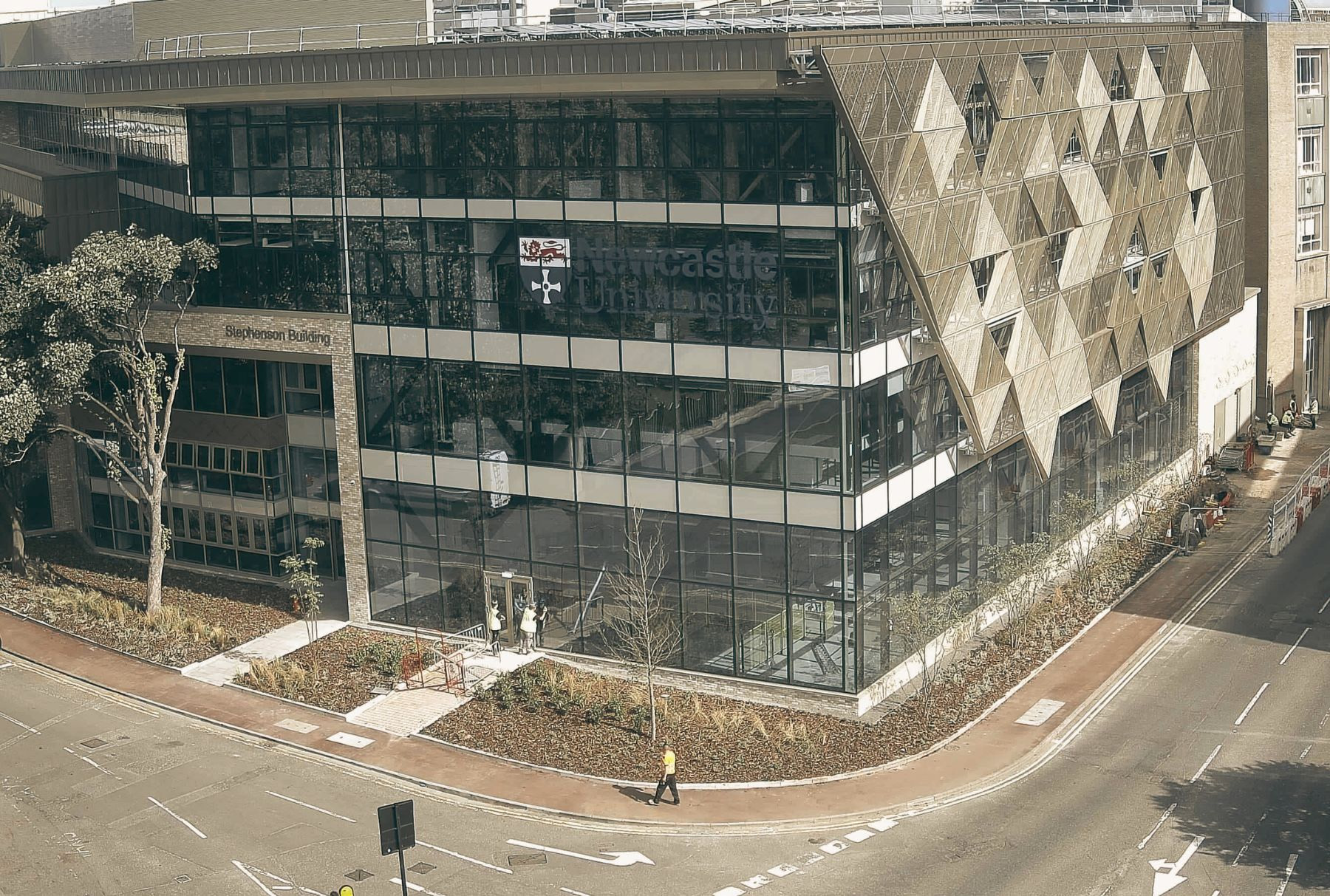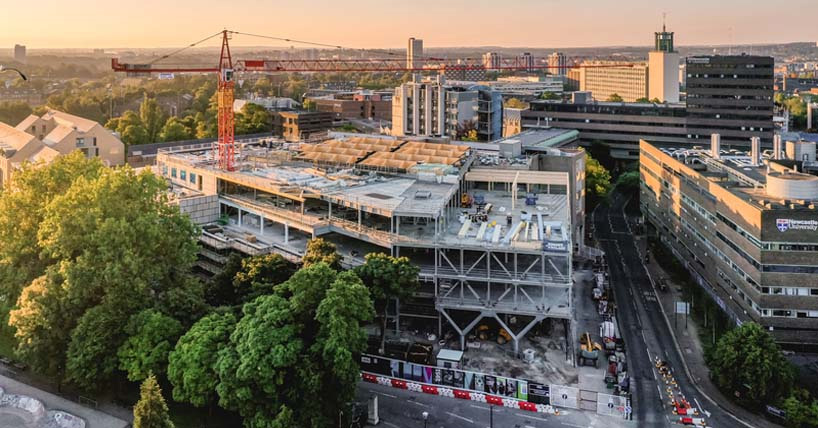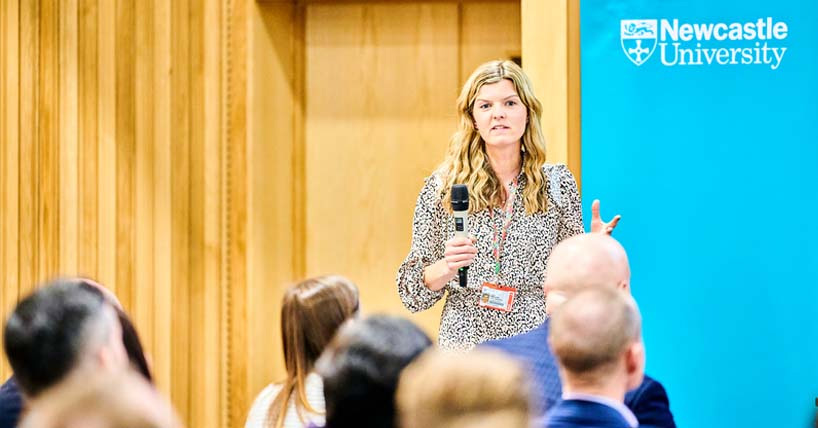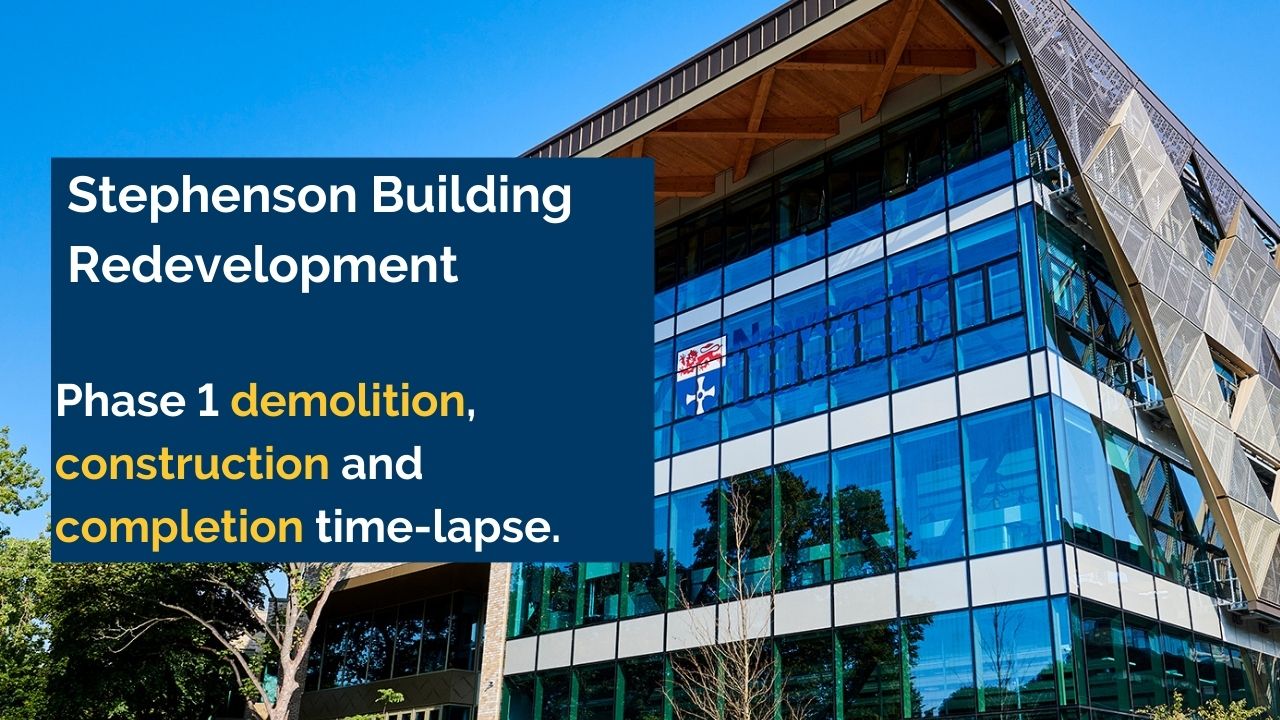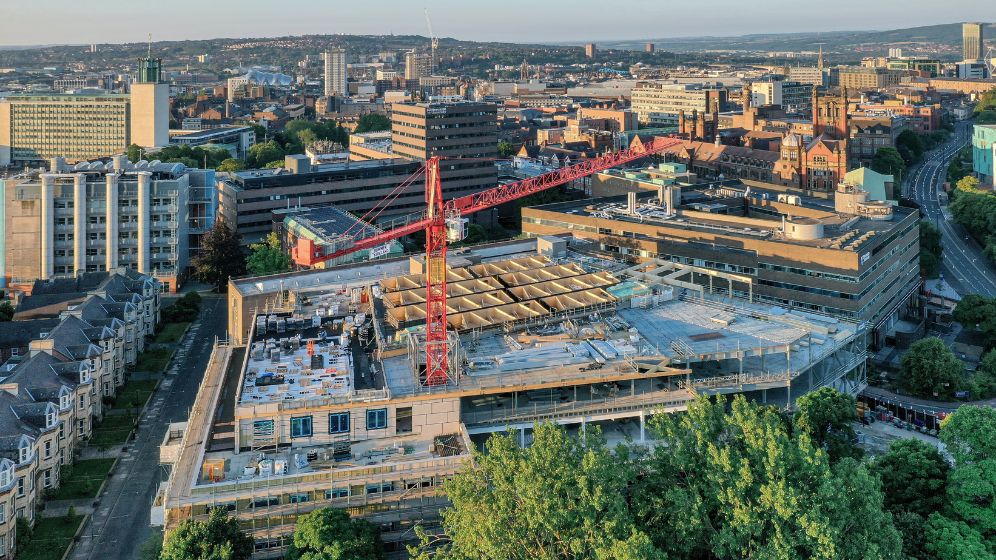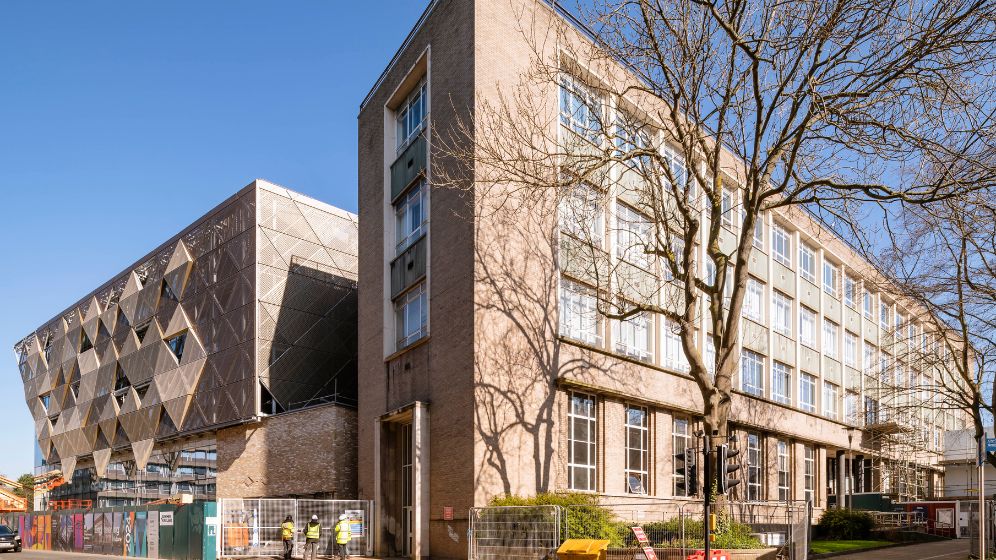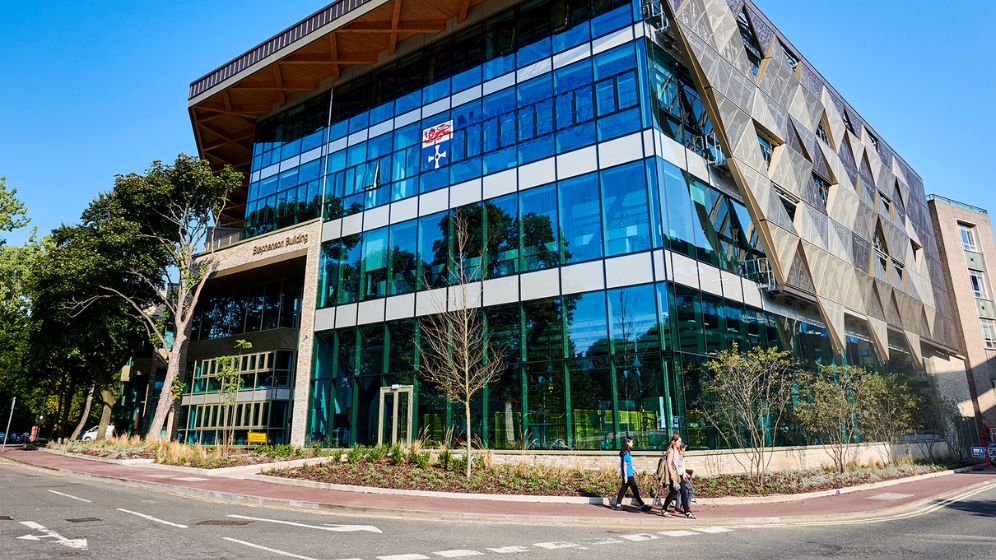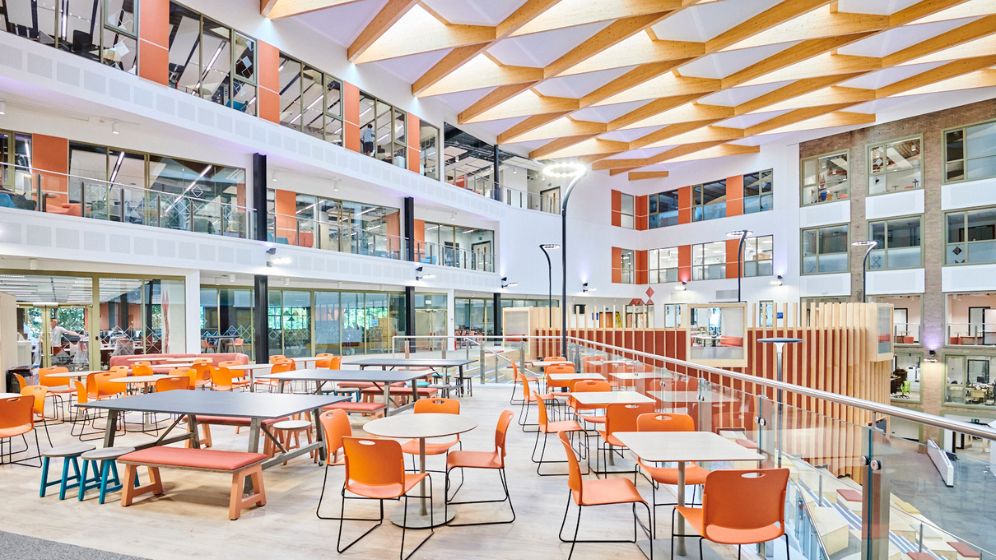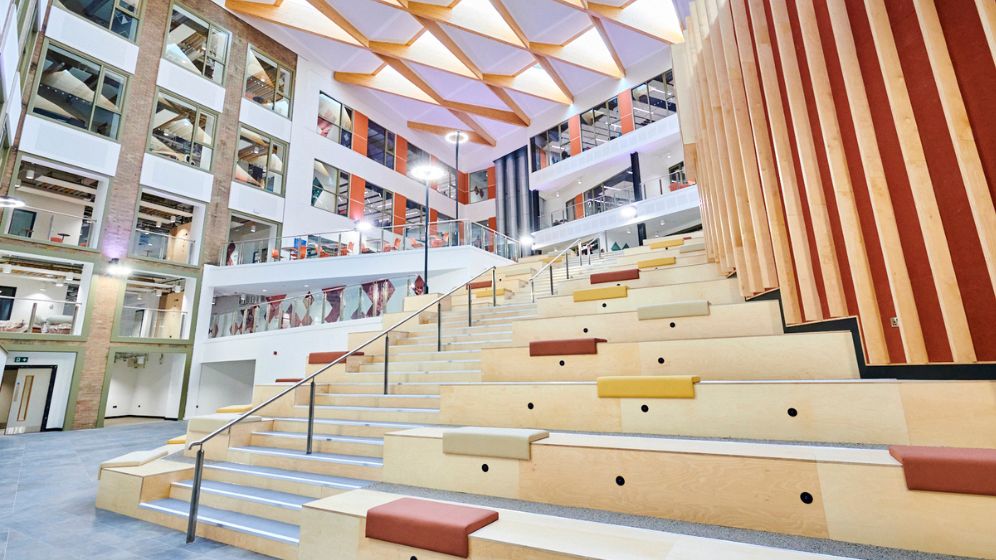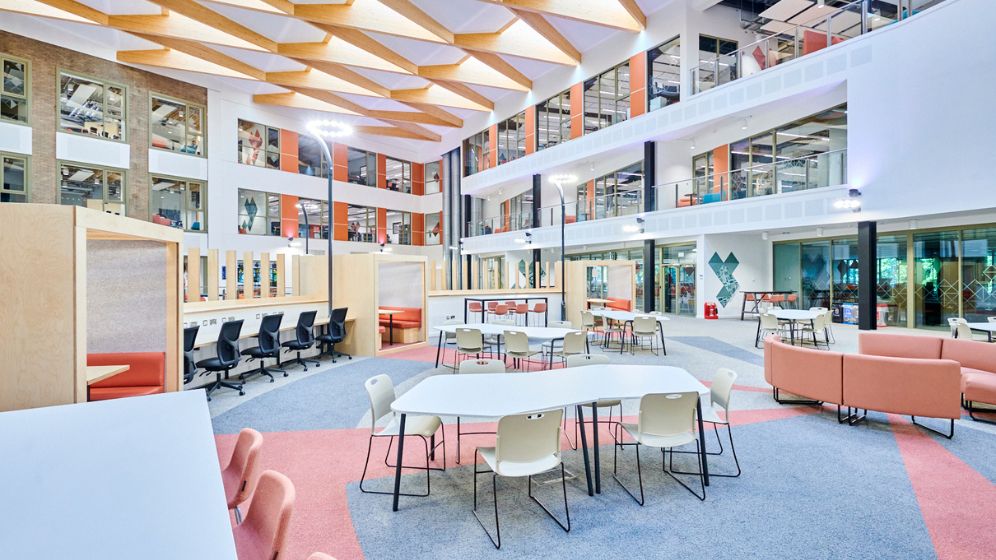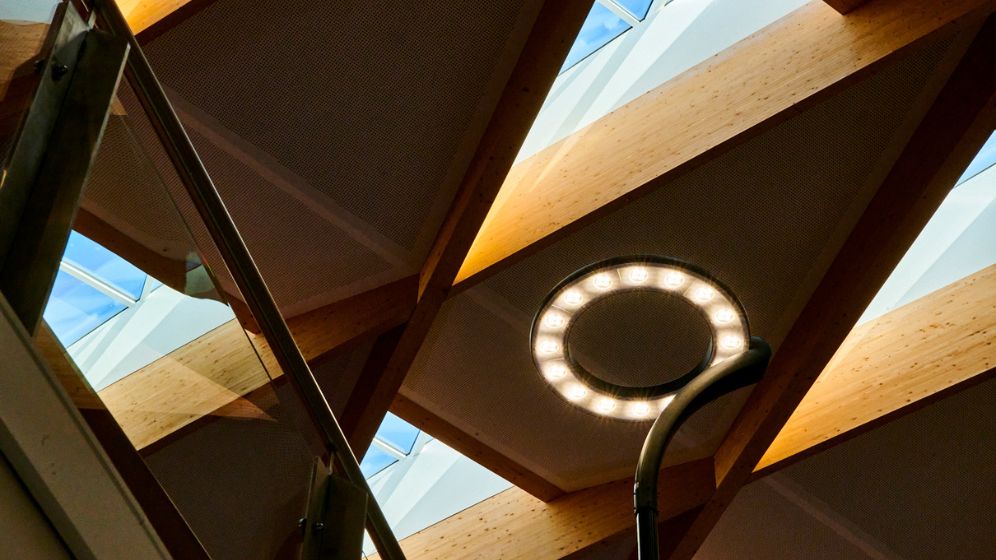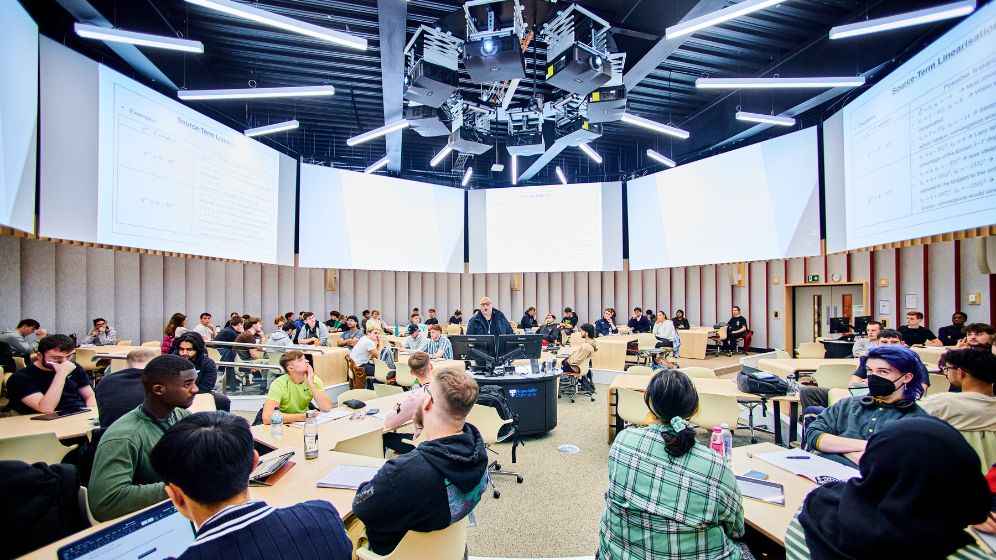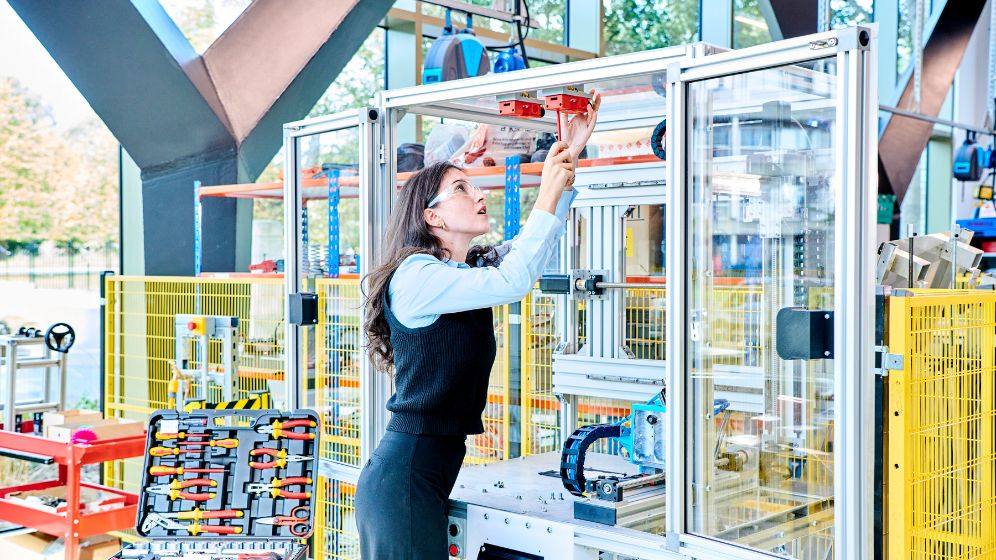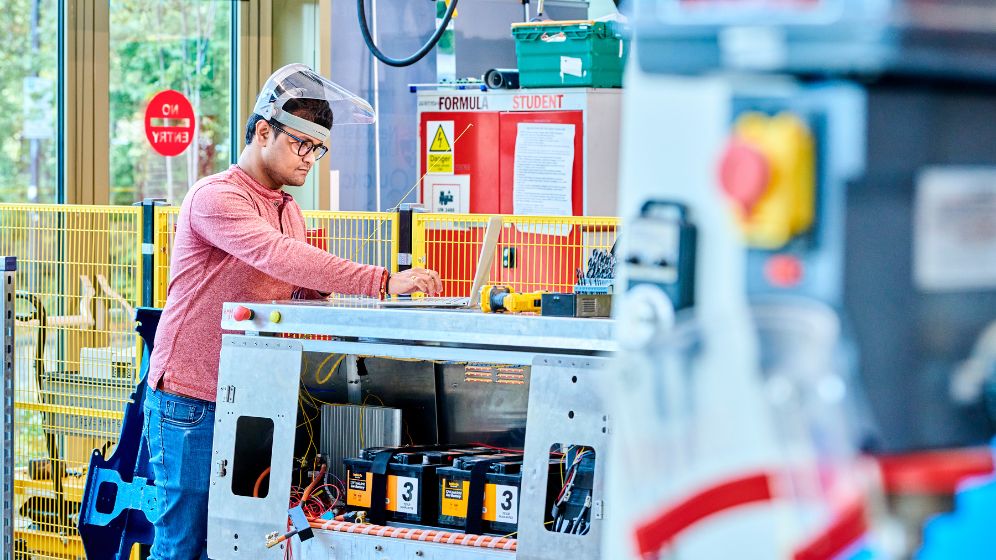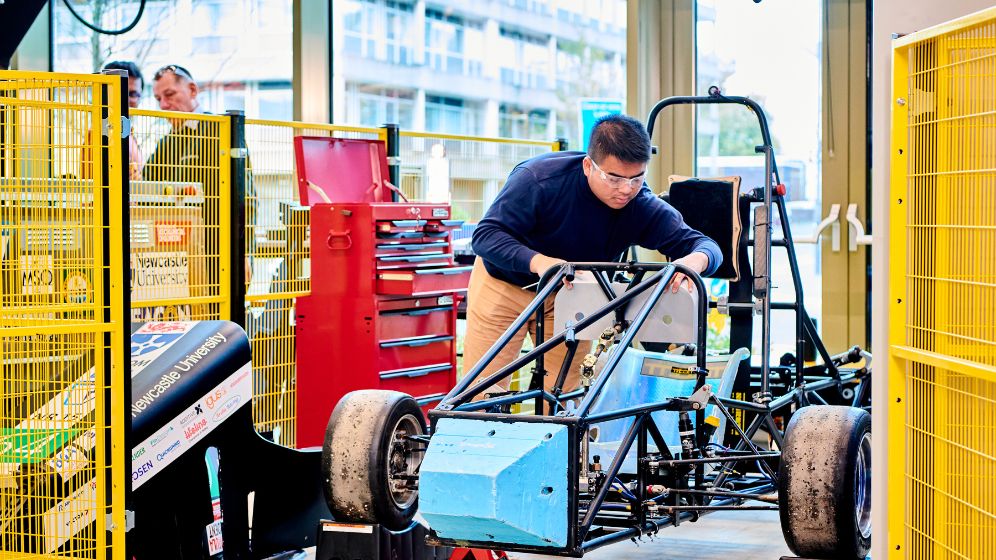The Stephenson Building
The place for people who make things happen. A beacon for world leading education, research and collaboration.
Investing in a world-class engineering facility
The redeveloped Stephenson building is the place for future engineers, researchers, designers, and visionaries to collaborate and tackle world challenges together.
Stephenson is the home for people who make things work.
The redevelopment is harnessing the building’s 70 years of heritage and transforming it into a hub for the future, a place to:
- engage, support, and challenge students to fulfil their potential
- drive transformative research across multiple disciplines
- boost the economy, social wellbeing, and cultural richness of Newcastle
Phase 1: the redevelopment opened in September 2023.
Phase 2: renovation of the original building's teaching and office spaces completed in September 2024.
The new Stephenson Building is part of our ongoing investment in exceptional facilities. It will deliver an outstanding student experience and a world leading environment for research and innovation.
Your gateway to a better world
From students and apprentices to academics and entrepreneurs, the new Stephenson has space dedicated to supporting you.
The site features:
- inclusive education spaces, such as the new Maker Space. This is a student-centred zone for interdisciplinary collaboration, creativity and entrepreneurship
- digital learning spaces with large flat-floor areas for flexible working
- multi-purpose teaching laboratories with flexibility to support multiple disciplines
- two lecture theatres, each with capacity for 180 people
Digital manufacturing
Manufacturing is no longer simply about making physical products. It's seeing a rise in technologies such as automation and artificial intelligence. They boost productivity and streamline production. Materials and parts are digitally validated before they reach the factory floor.
The new Stephenson hub will combine our scientific expertise in advanced materials and our world leading research in data. It will transform and visualise a range of industry sectors, including:
- construction
- pharmaceuticals
- automotive
Technologies bringing vast changes in skills
This rise in new technologies requires vast changes in skills and competence across industry and academic sectors.
The new building will connect and inspire a multi-disciplinary team. They will meet these emerging demands and deliver training and research to businesses and communities.
Sustainable propulsion
Electrification and automation of vehicles on land, at sea and in the air will transform public transport. It will dramatically reduce carbon emissions.
Our aim is to create a new school of thinking among engineers and scientists, capable of leading this transformation.
This new research hub will provide leadership in the aerospace, automotive, maritime and rail sectors. A key feature will be space where researchers and businesses are co-located.
Driving the Electric Revolution
The new hub will have close ties to the Driving the Electric Revolution Industrialisation Centres.
Under the banner of Driving the Electric Revolution Challenge, we secured a £30m government investment in collaborative research. The Stephenson Building will provide additional cutting-edge facilities for this field of work, attracting leading international researchers to Newcastle.
"The Driving the Electric Revolution Challenge, and the reduction in carbon it will help bring about, is a key focus for research at Newcastle University as we progress towards achieving the Government’s carbon neutral target by 2050."
Biomedical engineering
Of all the engineering disciplines, none have the power to transform lives like biomedical engineering.
This research hub aims to speed up the development and adoption of healthcare technologies. To transform lives, the hub will bring together:
- biomechanical engineering
- bioelectrical engineering
- regulatory science
Biomedical engineering holds a unique position at the interface between life sciences and technology. It's a new, evolving, technology-driven subject, with many facets, including:
- tissue engineering
- medical devices
- biomaterials
- biomanufacturing
Meeting the demand for more technology in medical practice
The growth of biomedical engineering is driven by:
- a growing and ageing world population
- ever-increasing public expectations of fitness and health, well into old age
Technology is becoming vital to medical practice. Biomedical engineers are the solution behind meeting this growing demand.
The Stephenson Building will lead the UK’s biomedical engineering agenda. It will provide a base to bring together doctors, clinicians and researchers from the:
- Faculty of Medical Sciences
- School of Engineering
- Newcastle Royal Victoria Infirmary
